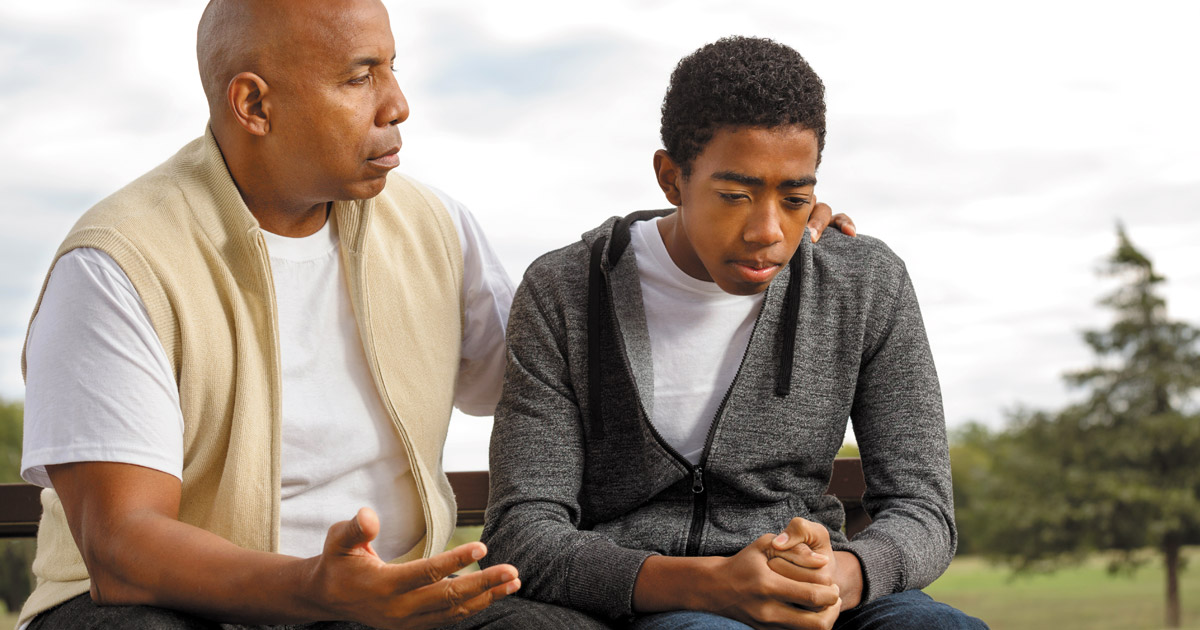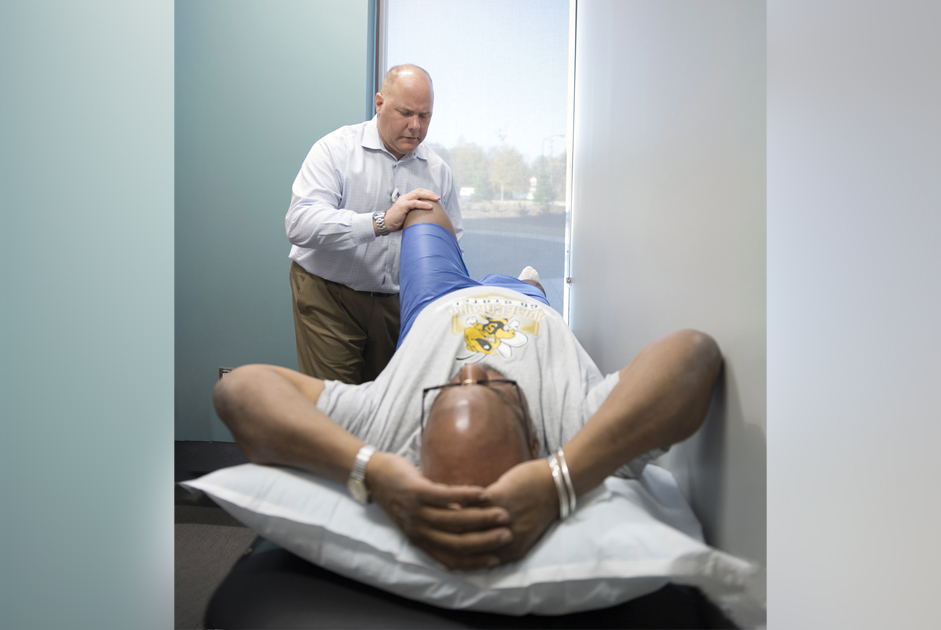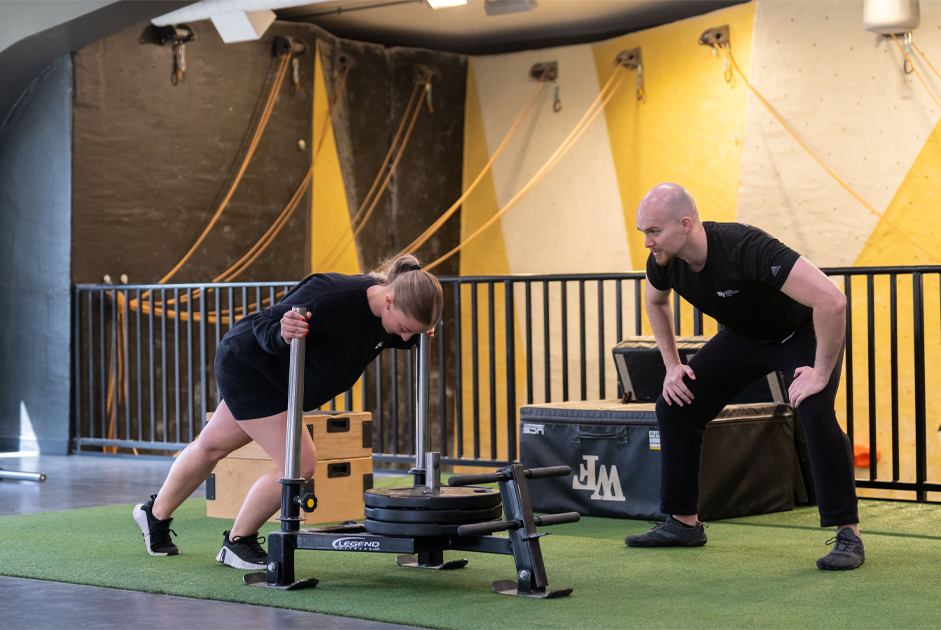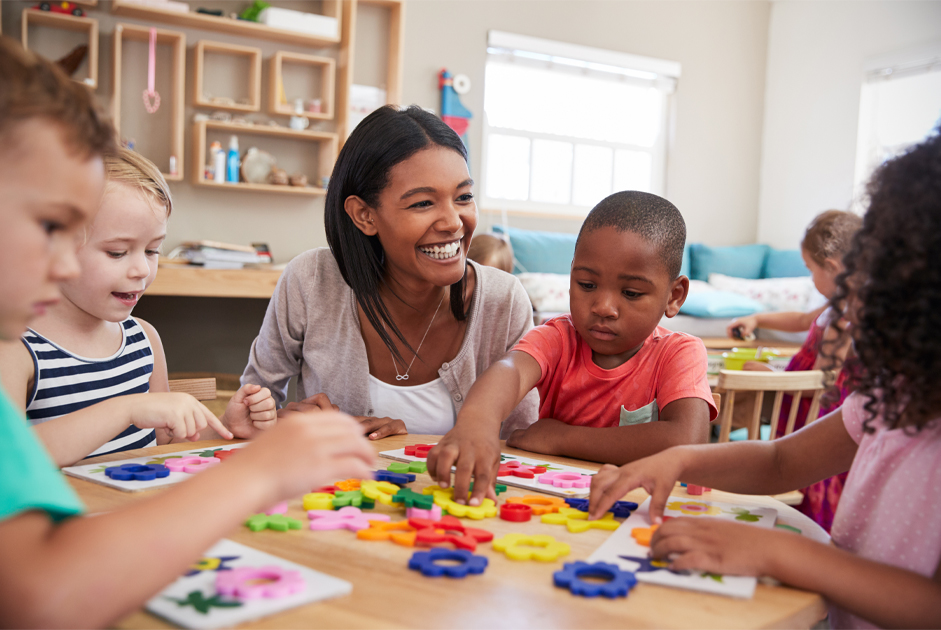BY ANNAMARIE EDWARDS, Program Director at The Montessori School of Winston-Salem and Certified Positive Discipline Coach
Every parent knows that parenting is challenging and that children don’t come with operating manuals. There is more information available about how to parent than ever before, and it can be overwhelming. Let me suggest one simple and commonsensical approach for consideration, “Positive Discipline.”
Positive discipline was introduced in 1981 by Jane Nelson in the first edition of her book, Positive Discipline. Since then, this approach to parenting has grown in popularity, as more and more parents have come to see the benefits for their children and their families. Positive Discipline is relevant from infancy through adolescence and emphasizes teaching the behaviors we want rather than punishing for those we don’t. It is based on mutual respect between parents and children, and is designed to teach young people necessary social and life skills to become responsible, respectful and contributing members of their families and communities.
While practical and straightforward, this approach does require a few paradigm shifts. The first is shifting our thinking from guilting, shaming, timeouts and punishing, to teaching and encouraging our children. The first four methods may work in the short term, yet they cannot produce sustainable long-term changes in a child’s ability to self-correct and develop self-discipline, the prized goals. Jane Nelson herself says it best. “Where did we get the crazy idea that to make children do better, we first have to make them feel worse?”
Instead of scolding a child for running in the house, we might tell him that running inside is dangerous and show him where running can happen safely, maybe the backyard. To encourage this new behavior, we might go outside and have a little fun running with him. Then, each time he runs inside, we can remind him where running should take place, thus teaching and encouraging him as he learns this new behavior.
The second important paradigm shift for parents is that it is not about changing my child’s behavior; it’s about changing mine. In my more than ten years as a positive discipline coach, parents report that even the smallest changes in their own behavior yield immediate positive responses from their children. When your child battles you in the morning about putting on her shoes, you can decide how you will change your response. Instead of pinning her down and putting on her shoes, you could choose to leave the house with her shoes in hand. “It’s time to go so we’ll have to carry your shoes and put them on later.”
The next paradigm shift is that misbehaving children are not are being bad, they are discouraged and trying to communicate something. “I am angry.” “I am scared.” “I want you to notice me.” “I want to help, too.” The goal is to understand this encrypted message. We, as leaders of our families, move from seeking to be understood by, to seeking to understand, our children. The next time you have the urge to say, “Do you understand me!” try asking, “What do you need right now?” It’s amazing how much children can tell us about what they need if we give them a chance.
A few other Positive Discipline tips for your parent toolbox include:
- Take a vow of YELLibacy. Try substituting yelling with another behavior. When you find yourself wanting to yell, then sing, dance, or say a funny tongue-twister. This new, unexpected response may help you get a different response from your child.
- Connect before you correct. This means redirecting your child’s behavior using a kind and firm approach at the same time. Kindness (connecting) reinforces your child’s sense of security, while firmness (correcting) sets a necessary limit or boundary. For example, “I care about your safety. You must hold my hand when we cross the street.”
- Get on the same page. It is essential that both parents be on the same page and represent a united front in their family. Also, consistency is a must. When setting a boundary or limit, make sure you can follow through every time.
Positive Discipline holds a treasure trove of useful parenting tools to help you enjoy parenting more and bring joy and harmony to your whole family. To learn more about “The Positive Disciple” approach, here are a few other resources:
- Positive Discipline: The First Three Years: Jane Nelson, ED.D, Cheryl Erwin, M.A. and Roslyn Ann Duffy
- Positive Discipline for Preschoolers: Jane Nelson, ED.D, Cheryl Erwin, M.A. and Roslyn Ann Duffy
- Positive Discipline for Teenagers: Jane Nelson, ED.D. and Lynn Lott, M.A., M.F.T.


















